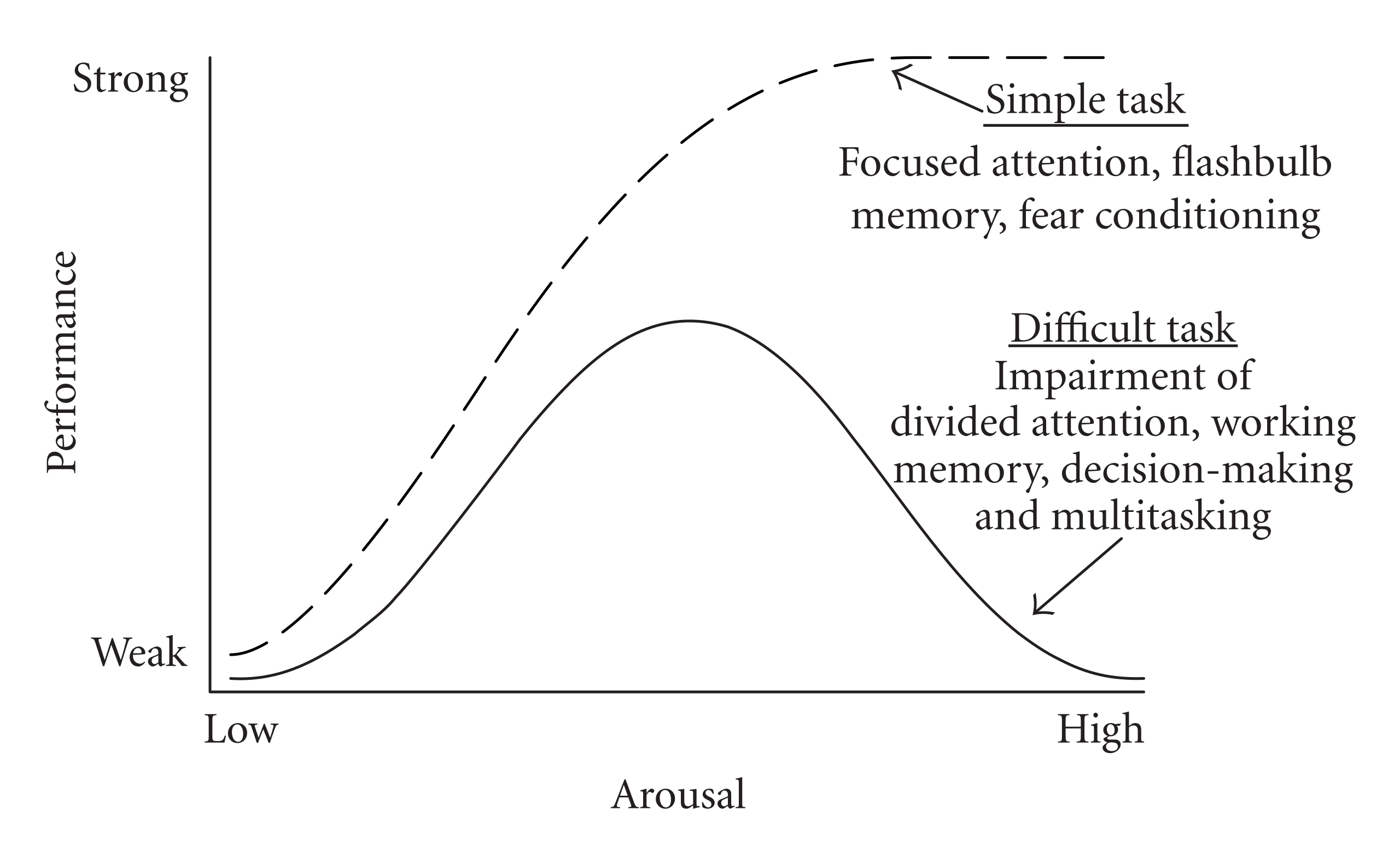Optimizing the Stress/Anxiety Curve
- by
- Sep 22, 2021
- Reviewed by: Amy Rontal, MD

Optimizing Your Stress Using the Yerkes-Dodson Law Will Help you Better Prepare for the USMLE Step 1 and Step 2 CK.
As a med student this late in the game, you’re familiar with stress. You and stress are frenemies, if you will. You know how stress likes its eggs, you know where stress goes when it needs to get away, you know stress’s middle name.
Despite the bond you share, stress is still the worst! No one wants stress at their party. But, according to psychologists, a little stress can actually be quite helpful. If you somehow dodged cramming the Yerkes-Dodson Curve into your brain back when you were prepping for the MCAT, allow us to explain!
The Yerkes-Dodson Curve
In 1908, a couple of psychologists (Yerkes and Dodson, of course) discovered that mice performed both simple and difficult tasks better at an optimal level of arousal. This optimal level of arousal sat between low arousal and high arousal (illustrated below). To be accurate, they also found that performance in simple tasks continued to increase with high levels of arousal or stress, but that difficult tasks took a dive in performance as anxiety increased.
The model below is the more popularized Hebbian version of the Yerkes-Dodson curve, which is the one most relevant for our purposes.

Yerkes-Dodson and Your Stress Sweet Spot
As with everything, the optimal level of stress is different for everyone. What may be very little stress for one person may be incredibly challenging for another. You know what this feels like, though, remember? Frenemies? Having a little fire under your feet can be good. It’s motivating and clears your head. But you also know how it feels to be so stressed it seems like maybe you never actually had access to your own thoughts. Or so bored you can’t remember what you ate for breakfast, let alone recall any complex information. In other words, you know what amount of stress works for you, and what amount sends you spiraling.
Change Your Mindset.
So, what does this mean for you? It means in order to study effectively you’re going to need to administer the optimal level of electric shocks to your body. Sorry, we don’t make the rules. Kidding! Actually, it means you can use time and reasonable constraints to your advantage. For example, understanding how arousal levels impact your performance helps you see the timing tools on your UWorld blocks, not just as a way to practice for the actual test, but as a tool to better your focus and determination. It also means that building a strict-not-so-strict study schedule, dare we say optimal, is not something you do just for planning purposes, but because it will help your performance overall. (And you know who can help you build a study schedule?)
Let Blueprint’s Med School Study Planner take away the stress of planning and managing a study plan for USMLE Step 1, Step 2, COMLEX, and your shelf exams. Get FREE unlimited access today and create your personalized study plan in minutes!
How to Apply the Yerkes-Dodson Curve
We see this information as a tool for your intuition. Next time you just can’t get your head on straight during your dedicated, take a moment to analyze your stress levels. Are you feeling lifeless? Maybe you need to add an attainable time constraint to the block you’re on or try to challenge yourself with a new topic. Or if your mind is reeling, consider taking a walk, or step away to get a few things done that you can’t get off your mind. (Check out this post for 5 stress-reduction tips for med students by Health Writer Issy Fuller.)
Conclusion
Stress is a frenemy! The right amount can actually help you prepare for your exams. Be sure to use the Yerkes-Dodson Curve to your advantage as you prepare for USMLE Step 1 and Step 2. Look for signs your arousal level is either too low or too high, and adjust accordingly. Remember, a little stress is a good thing! Good luck preparing for your exams, and be sure to reach out to the tutors at Blueprint if you need further assistance!










